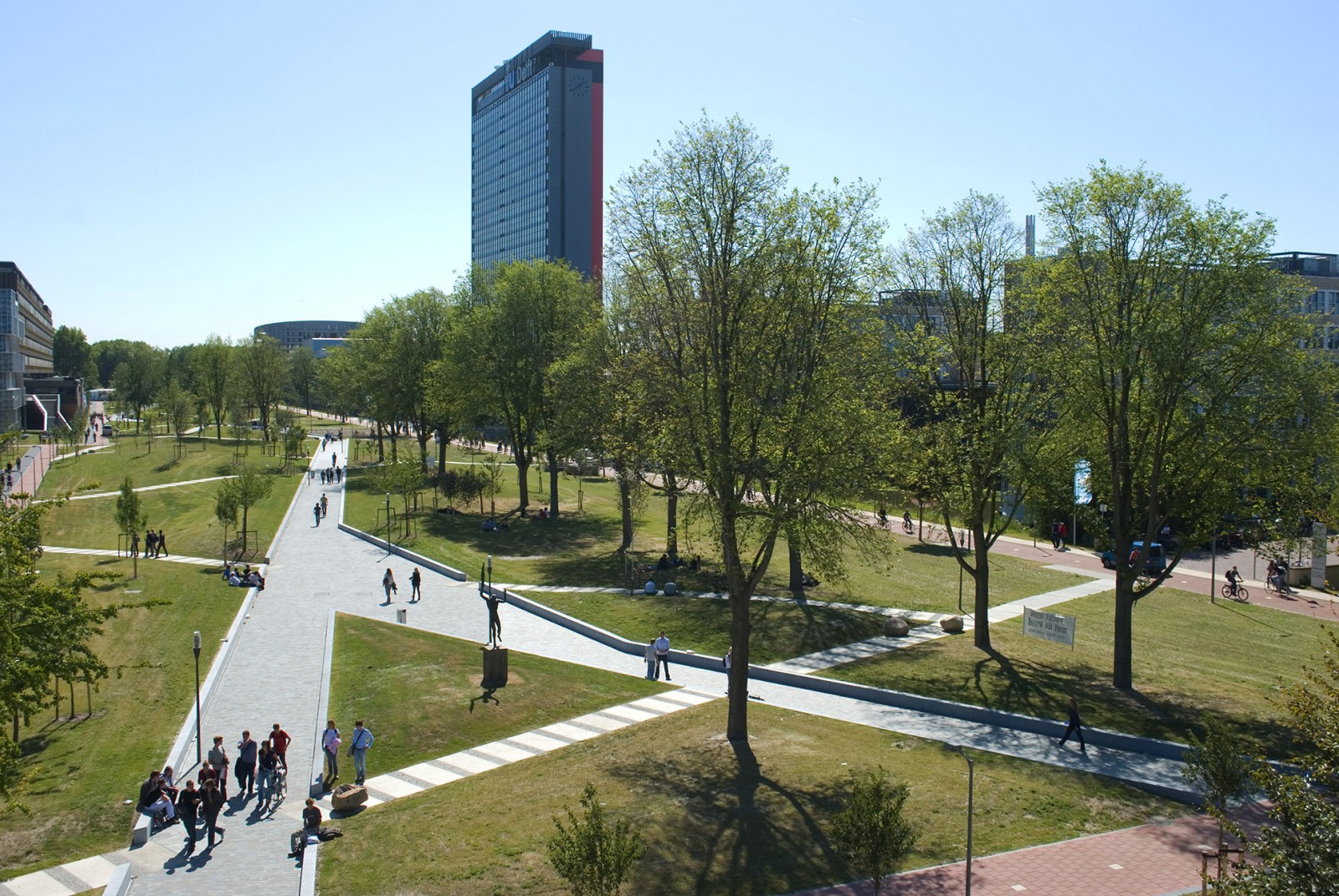For many years, TU Delft has worked with other universities, companies and governments to promote concrete innovative solutions to social issues. In addition to scientific education and research, this is a legitimate mission of Dutch universities, including TU Delft.
In light of the above, TU Delft, like many other institutions, cooperates with companies in the defense sector. However, some have criticized this collaboration. TU Delft wants to openly explain why the university cooperates with the defense industry.
Defense promotes peace and security
The Netherlands is a resilient democracy, a member of NATO, the European Union and the United Nations. The Dutch defense forces defend their own territory, the interests of the Netherlands and friendly countries. Defense defends others, supports during disasters and thus promotes peace, freedom and security in the world.
Compared to a few years ago, the need for social security is greater now, and thus defense is valued more. This is undoubtedly related to the war in Ukraine, but also to geopolitical conflicts and increased threats in other parts of the world.
Cooperation between knowledge institutions and the defense industry is more necessary than ever
The Dutch government believes that Europe must quickly reduce its dependence on other countries and take more responsibility for defense in both NATO and the EU1.
In order to increase the efficiency of Europe, the countries must jointly develop and acquire more equipment faster and more, also to secure the peace and security of the EU (see the Open Strategic Autonomy report).
The research and innovation agenda of the EU and the Netherlands adapts to this. Innovation budgets are transferred to defense-related research.
The cooperation is in line with TU Delft’s mission
TU Delft’s mission is to “influence a better society”. Social tasks lead here. In times of growing geopolitical tensions, this also means an increased commitment to developing innovative defense technology when society demands it.
TU Delft agrees with the position of the Dutch government2 that the defense of its own and allied territory requires a solid foundation from information institutions and companies that ensure that the Netherlands has the right military knowledge, technology and capabilities.
Cooperation with other universities and defense industry companies inside and outside the European Union is a social task for TU Delft in the name of peace, freedom and security. Open information exchange is the basis of scientific development and the application of scientific knowledge.
Information security
TU Delft is aware of its social mission to promote peace, freedom and security. At the same time, the university is aware that cooperation with people or institutions also involves risks that must be addressed. It is important that decision-making regarding partnerships is always done carefully, taking into account the rights and interests of all parties involved.
TU Delft has a Knowledge Safety Advisory Team that helps employees assess risks and assess compliance with legislation and regulations. This advisory group has established the Knowledge Safety Advice Line to help researchers determine whether collaboration with an institution or individual is permissible or desirable.
It goes without saying that TU Delft does not cooperate with organizations that threaten national security. The same applies to persons on the national terrorism sanctions list.
Safe discussion about the moral aspects of cooperation with the defense industry
It is important for employees and students to be able to express themselves freely on this topic. The university should be a safe place to explore arguments for or against cooperation together. It is appropriate for the university to promote the discussion on the moral aspects of defense industry research. TU Delft does this, for example, by setting up a moral consultation chamber3. The moral assessment is then up to the researcher.
Cooperation with Lockheed Martin
The above describes in detail why TU Delft cooperates with companies in the defense industry. The campaigns have recently particularly criticized the collaboration between TU Delft and the American Lockheed Martin.
In order to avoid misunderstandings and misinformation about this collaboration, TU Delft hereby provides the facts regarding this collaboration. Cooperation with Lockheed Martin concerns:
Training program for students. Each year, approximately 8 Aerospace Engineering master’s students complete a five-month internship at Lockheed Martin in Fort Worth, Texas. The student applies his aviation technology knowledge and works especially on the optimization and quality control of the F-35 production process and maintenance. Lockheed Martin is one of the many companies where students do internships. A multi-month internship is a mandatory part of all MSc students in aeronautical engineering at TU Delft. This applies to approximately 400 students each year. Three quarters of these go abroad to train. They go to companies and institutions worldwide such as NASA, Qantas, KLM, NLR, Airbus, Porsche, BMW and also Lockheed Martin. The internship program with Lockheed Martin began in 2003 to give students the opportunity to work in aircraft engineering in an international environment. The training program is implemented in cooperation with GKN Aerospace.
The Faculty of Aerospace Engineering has a part-time professor at the expense of Lockheed Martin who supervises doctoral students and lectures on aerospace materials.
1 Source: Ollongren calls for more military responsibility in Europe | News | Defense.nl
2 Source: Defense Industry Strategy Memorandum (overheid.nl)
3 The Moral Deliberation Chamber is a method that gradually resolves the dilemmas of work practice related to information security. This pilot in the Faculty of Electrical Engineering, Mathematics and Computer Science will be continued throughout the university in 2023/2024. In other areas as well (such as cooperation with the fossil fuel industry and the defense sector), we will find out how moral judgment benefits careful decision-making, transparency and learning.
This article is a submitted article and is not the responsibility of the editors.

